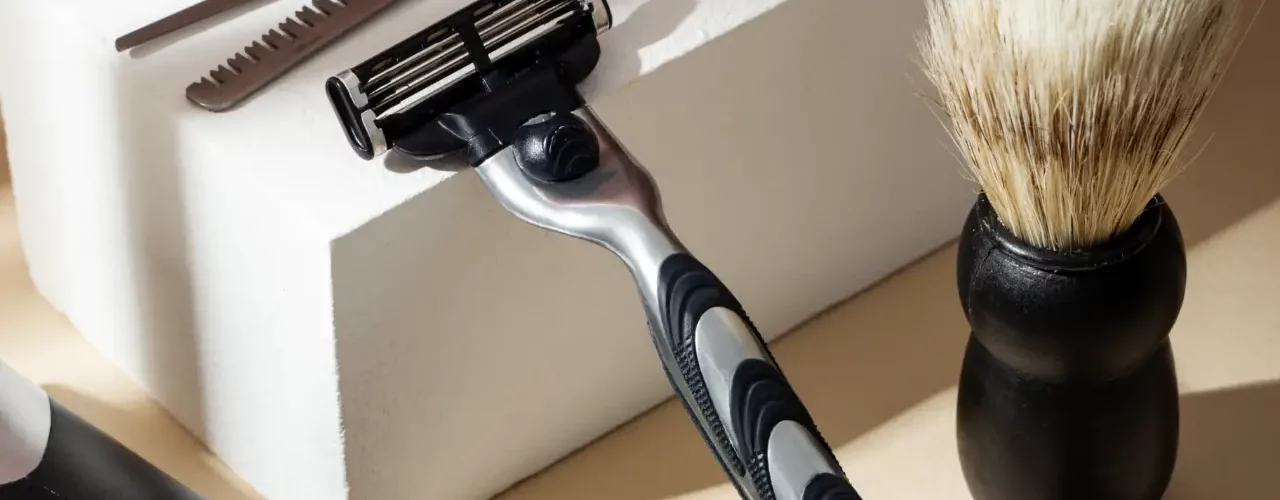A Practical Halachic Guide to Shaving and Haircuts in the Medical Setting
Shaving and haircuts are routine activities that are subject to many wide-ranging Halachos. Comprehensive Halachic knowledge is required to ensure that they are performed correctly. Relevant Issurim include destroying the Pe’os of the head and beard and “Lo Yilbash” – “A man shall not wear a woman’s garment”, among others.
Medical procedures sometimes require shaving facial or other hair for various reasons, including clearing an area before a procedure or surgery, promoting healing following surgery, and examining the skin or other structures. Below we will provide several examples along with a brief discussion of fundamental Halachic principles.
Shabbos
- It is forbidden to cut or shave a patient’s hair on Shabbos in preparation for a scheduled surgery unless it is an urgent life-saving procedure that needs to be performed on Shabbos or immediately afterward and it is not possible to delay the surgery to cut the hair after Shabbos.
- It is permissible to shave the chest hair of a patient whose life is endangered and requires an ECG on Shabbos if the chest hair prevents the electrode stickers from adhering to his chest. The same is true of hair that interferes with electrode placement (on the head) when an EEG is urgently needed on Shabbos.
- In any such case, it is imperative to cut the bare minimum of hair, because cutting each single hair is a Torah prohibition in its own right. (See Mishna Berura, 340:3; Nishmas Avraham, ibid.)
- A woman who is due to give birth should ideally shave any hair that may need to be removed for childbirth in advance of Shabbos (ibid., Toras haYoledes).
Giluach of the Pe’os of the Head and Beard –“Hakafa”
- It is forbidden to shave the Pe’os and beard with a razor blade even for medical purposes (such as to suture a wound) unless the incision endangers the patient’s life and there is no other sterile method to shave the hair.
- In almost all cases there is no reason to specifically shave with a razor blade. (Encyclopedia of Medical Halacha, 6, p46). Scissors or other devices should be used.
- A female nurse who needs to shave a patient’s facial hair should ideally provide him with an electric shaver. If this is difficult, she is permitted to shave him with a razor, because a woman is not bound by the prohibition of Hakafa me’Ikar haDin (Shulchan Aruch Y.D. 181:6, Shach, ibid., Hagahos R’ Akiva Eiger, ibid.). If she refuses to shave him with a razor and he does so himself, this would constitute a more severe prohibition (R’ Yehoshua Neuwirth zt”l, cited in Nishmas Avraham, 181). This Heter does not apply to a male nurse.
“Lo Yilbash”
- A man who has sores in the armpits or pubic area that cause him great discomfort may shave these areas (Shulchan Aruch, Y.D., 182:4).
- He may likewise do so for medical purposes (Shevet haLevi, 11:199; Shevet haKehasi, 3:233).
- Following surgery on the coccygeal area to remove a pilonidal sinus (often associated with “inverted hairs”), it is permitted to regularly shave the area or to permanently remove the hair with a laser.
- A bachur who has hairs between his two eyebrows is permitted to shave them (R’ Shlomo Zalman Auerbach zt”l, as cited in Nishmas Avraham, 182, p140, and Rav Elyashiv zt”l, as cited in Tel Talpiot, 5773, permitting permanent laser removal).
- Those who have dense nasal hair may remove it (R’ Mordechai Gross, Om Ani Choma, 2:69).
Giluach of One’s Father
- Some Poskim hold that a son should not cut or shave his father’s hair, lest he come to draw blood (Moshav Zekenim l’Ba’alei haTosfos, Parshas Kedoshim. Leket Yosher cites the Terumas haDeshen who forbade his son from cutting his hair for this reason). However, this only applies when there is a concern of drawing blood, such as when shaving with sharp instruments, or when the father has fragile or extremely sensitive skin. Shaving the beard or cutting the hair with delicate clippers, or any other procedure that raises no concern of drawing blood, is permitted (Shevet haKehasi, 1:260).
- Likewise, if the father prefers that his son perform the haircut, either because he is embarrassed for another person to see his head wounds, or because he thinks that his son is more likely to cut his hair gently and cause him less pain, it is permissible (Be’er Moshe, 4:84).












Add comment